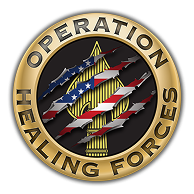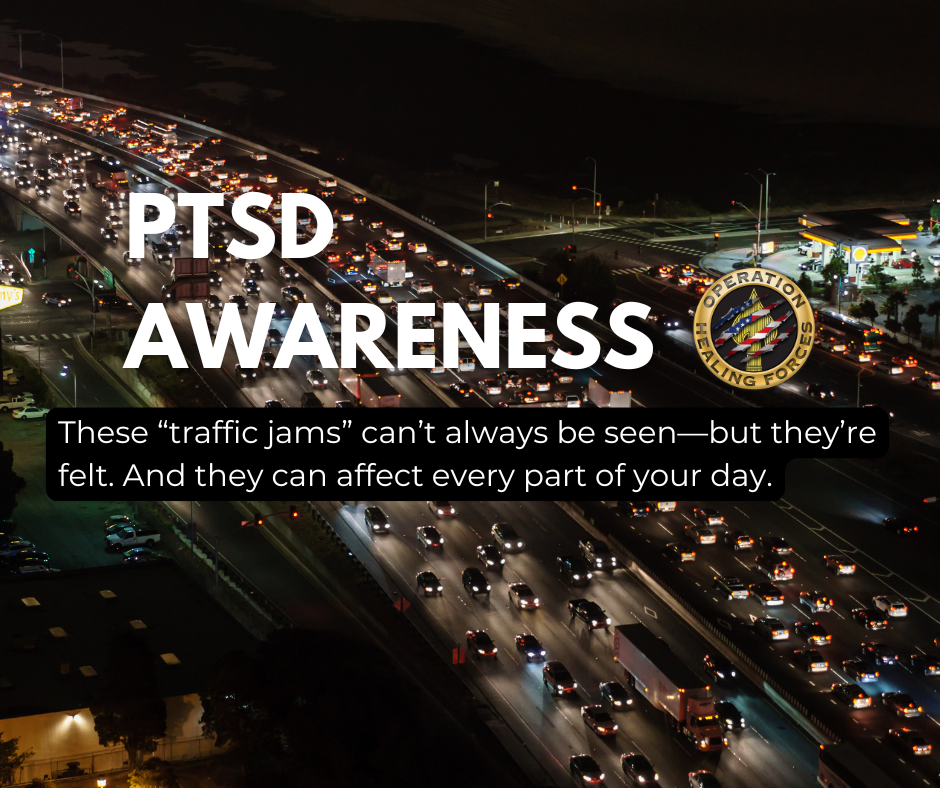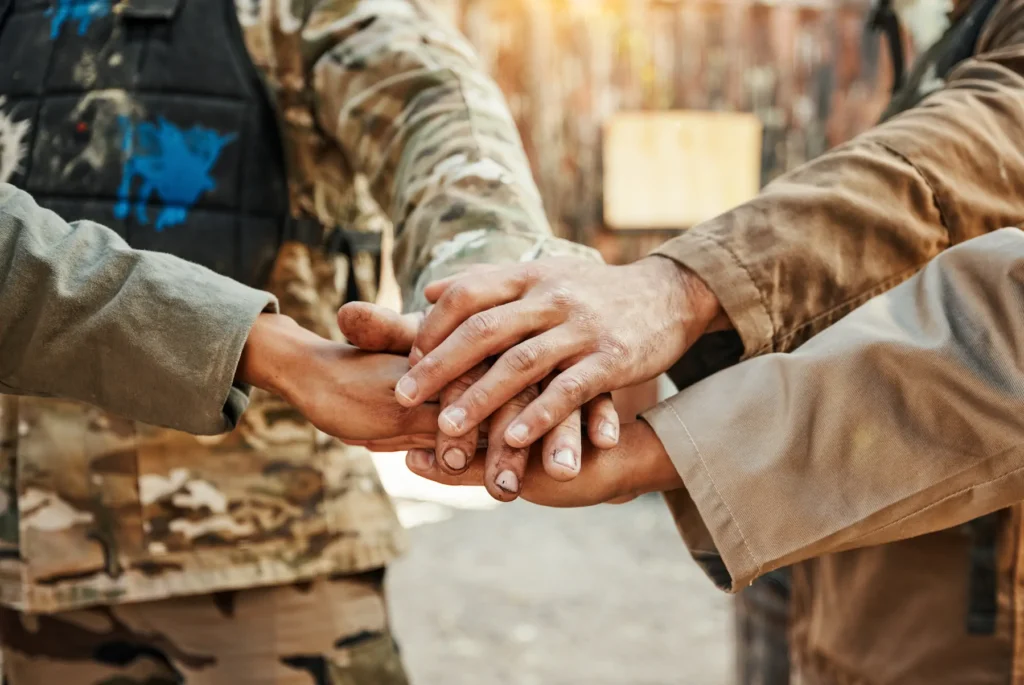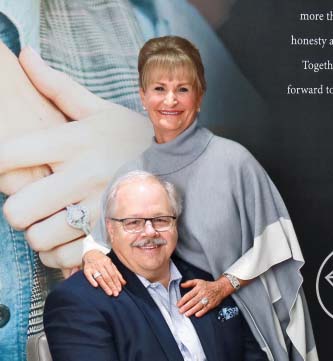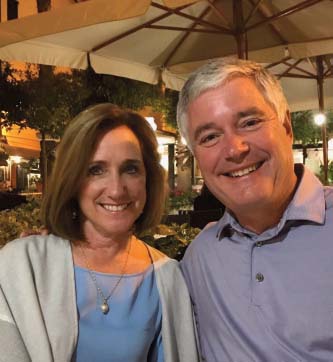By Frances Brown, Operation Healing Forces Wellness Coordinator
You can’t see it in the mirror. You might not even realize it’s there. But if you’ve experienced trauma, your body remembers—and it could be quietly sounding the alarm. Post Traumatic Stress Disorder (PTSD) isn’t just a psychological issue. It can affect your sleep, digestion, focus, and even your relationships. This invisible wound runs deep—but healing is possible.
How Trauma Impacts the Body
PTSD isn’t just something that lives in the mind. It can show up in your sleep patterns, your gut, your ability to focus, or even in how you interact with others. It’s often called an invisible wound—but that doesn’t make it any less real. Our bodies are designed to keep us safe. But after trauma, especially repeated or high-stress experiences like those common in Special Operations Forces (SOF), your nervous system can stay on high alert—even when the danger is long gone.
You might notice:
Feeling overwhelmed or unusually sensitive to lights, sounds, or crowds
Struggles with sleep or constant fatigue
Digestive issues that don’t seem to have a clear cause
Trouble concentrating or making decisions
These aren’t just random symptoms. They’re often signs that your nervous system is dysregulated—a common effect of PTSD.
Think of Your Nervous System Like a Highway
Imagine your nervous system as a highway network running throughout your entire body. When everything’s working smoothly, traffic flows, and your body functions well. But trauma is like a massive traffic jam or even a pile-up. Suddenly, the signals don’t move properly. Your digestion slows down, sleep cycle gets thrown off, and energy crashes.
These “traffic jams” can’t always be seen—but they’re felt. And they can affect every part of your day.
Why the Mind Gets Stuck on the Negative
Our brains are wired to protect us. That’s why we tend to focus more on the bad than the good—it’s part of our survival instinct. If someone tells you a certain berry might taste sweet, that’s helpful. But if they tell you the berry could make you sick, you’ll probably remember that first.
For someone with PTSD, the brain is on high alert all the time. It’s constantly scanning for threats—even when there are none. That negativity bias can become a loop that’s hard to escape. But with the right tools and support, it can be interrupted.
Hope and Healing: What You Can Do
Healing doesn’t happen overnight. But small steps can make a big difference.
Here are a few ways to start calming your nervous system and supporting your body:
Practice simple breathing exercises or mindfulness techniques
Move your body in ways that feel good, not forced
Talk with a trusted counselor, therapist, or peer
Surround yourself with people who get it
Join a program designed specifically for Veterans or SOF families
You don’t have to wait until things get worse to seek help. Sometimes, the most powerful move is simply saying, “I need support.”
Why Asking for Help Matters
If you’ve ever caught yourself saying, “I’m fine,” when your body and mind are telling you otherwise, you’re not alone. But choosing to prioritize your healing doesn’t just help you—it strengthens your relationships, sharpens your focus, and helps you live with more clarity and energy.
Think of it as regular maintenance. Just like you wouldn’t drive a car forever without a tune-up, your body and mind need attention—especially after what they’ve been through.
How Operation Healing Forces Supports Veterans and Families
At Operation Healing Forces (OHF), we see these invisible wounds—and we work every day to help Special Operations service members, veterans, and their families heal from them.
Through our therapeutic retreats, SOF assistance and resources program, we provide support tailored to each individual’s journey. Whether it’s helping couples reconnect after years of deployment, guiding someone toward trauma-informed care, or simply offering space to breathe and reset, OHF is committed to the path of healing.
If this sounds like something you or a loved one needs, connect with us. Take the step toward healing—for your peace, your purpose, and your future.
Helpful Resources:
https://www.charliehealth.com/post/how-does-your-body-remember-trauma
PTSD: How is treatment changing? – Harvard Health
Dysregulated Nervous System Symptoms
11 Easy (Yet Powerful) Ways To Manage PTSD Symptoms At Home
https://clearwavementalhealth.com/rewiring-the-mind-changing-negative-thoughts-related-to-ptsd/
